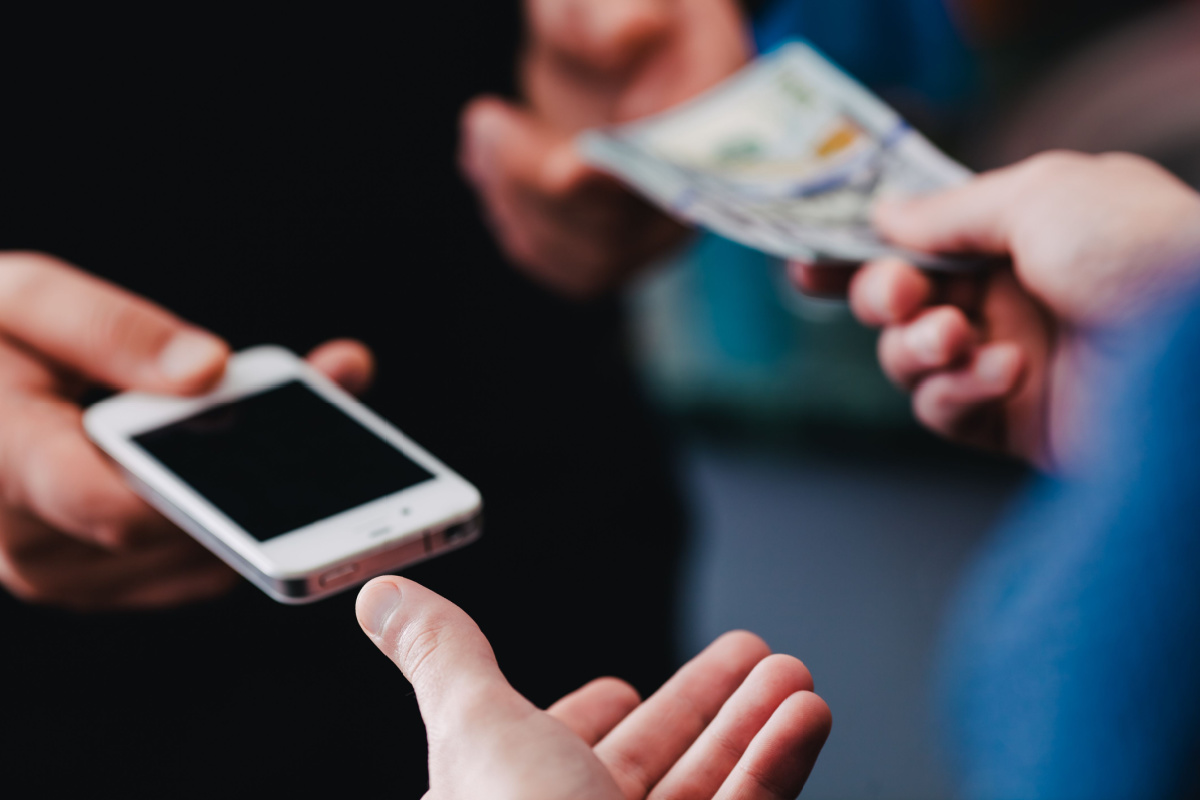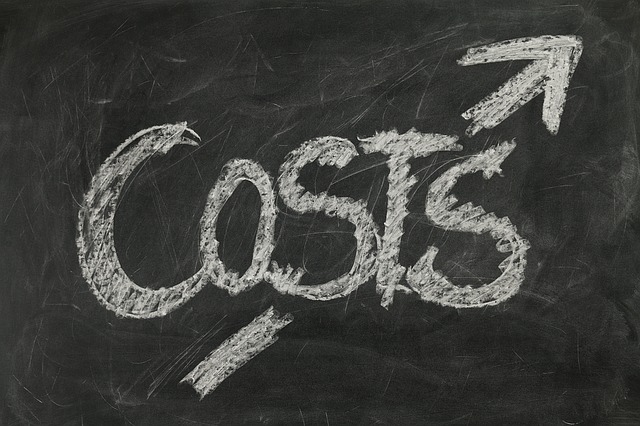How to Get Approved for a Cell Phone With Bad Credit: Tips & Strategies
Are you struggling to get a cell phone plan approved because of bad credit? Don't worry; you're not alone. Many people have difficulty getting approved for a cell phone plan when their credit score is less than perfect.
But the good news is that there are ways to get approved for a cell phone with bad credit.
In this article, we'll explore four ways to buy a phone with bad credit. So, if you're wondering how to get approved for a cell phone with bad credit, keep reading to find out.
Why Does Your Credit Score Matter When Shopping for a Cell Phone?
Your credit score reflects your creditworthiness and indicates your ability to pay bills on time. That's why carriers rely on your credit score to assess the level of risk you pose as a customer, determining whether you're likely to make timely payments or face potential defaults.
 A low credit score indicates that you may have a history of missed payments, collections, or other negative credit events. This can make it harder to get approved for a cell phone plan. If approved, you may have to pay a deposit or higher monthly fees. In some cases, carriers may even deny your application if your credit score is too low.
A low credit score indicates that you may have a history of missed payments, collections, or other negative credit events. This can make it harder to get approved for a cell phone plan. If approved, you may have to pay a deposit or higher monthly fees. In some cases, carriers may even deny your application if your credit score is too low.
What's Considered Bad Credit to Cell Phone Companies?
Every cell phone company has different criteria for what they consider "bad credit." At the same time, the credit score needed for a cell phone contract can also vary depending on the carrier and the specific plan.
Credit scores typically fall into different tiers, each reflecting a specific range of creditworthiness. These tiers may vary slightly depending on the credit scoring model used, but generally, they are as follows:
- Excellent: Credit scores ranging from 750 to 850 are considered excellent. This indicates a minimal risk of default and suggests a history of responsible credit management.
- Good: Credit scores ranging from 700 to 749 are classified as good. This reflects a low risk of default and implies a relatively strong credit history.
- Fair: Credit scores ranging from 650 to 699 are considered fair. This suggests a moderate risk of default and may indicate some credit management issues.
- Poor: Credit scores ranging from 550 to 649 are classified as poor. This reflects a higher risk of default and may indicate a history of late payments or defaults.
- Bad: Credit scores below 550 are considered bad. This indicates a very high risk of default and may suggest serious credit management issues.
A credit score of 580 or below is generally regarded as poor or subprime credit. Therefore, if you have a credit score below 580, you may have trouble getting approved for a cell phone plan with a primary carrier.
Generally, credit scores are determined based on the following factors:
- Payment history: This is the most crucial factor, accounting for about 35% of your credit score. It reflects whether you've paid debts on time, had late fees, or defaulted on accounts.
- Credit utilization: This accounts for about 30% of your credit score and refers to the amount of credit you use compared to your total available credit. Higher credit utilization can negatively impact your credit score.
- Length of credit history: This accounts for about 15% of your credit score and reflects how long you've had credit accounts open. Longer credit history is generally viewed more favorably.
- Credit mix: This accounts for about 10% of your credit score and refers to the types of credit you have, such as credit cards, loans, and mortgages. A diverse credit mix may be viewed more positively.
- New credit inquiries: This accounts for about 10% of your credit score and reflects the number of recent credit inquiries or applications for new credit you’ve submitted. Too many inquiries within a short period can negatively impact your credit score.
Four Ways to Buy a Phone With Bad Credit
Getting approved for a phone contract can be challenging if you have bad credit. Fortunately, you may still finance a phone in several ways without going through a credit check. Here are four ways to finance a phone with bad credit:
1. Sign Up for a Prepaid Plan
Prepaid plans are an excellent option for people with bad credit who want a cell phone plan. Most major carriers offer prepaid plans, so you'll still have access to the latest smartphones and network coverage.
However, prepaid plans may not offer the same discounts and promotions on devices as postpaid plans, like equipment protection plans and premium content or service bundles. This means that if you plan on using your phone for an extended period, a postpaid plan may be more cost-effective. However, if you only need a phone for a short period or have a limited budget, a prepaid plan may be a good option.
2. Buy an Unlocked Cell Phone
Another option to buy a phone with bad credit is to buy an unlocked cell phone. Unlocked phones are not tied to a specific carrier, which means you can use them with any carrier that supports your phone's network.
When you buy an unlocked phone, you can choose a prepaid or month-to-month plan without worrying about a credit check. You can also switch carriers as often as you like, which can be helpful if you are trying to find the best plan for your needs. However, remember that not all phones are compatible with all carriers, so research before purchasing.
3. Buy Now, Pay Later Cell Phones
Some cell phone providers offer buy now, pay later options for bad credit holders. With this option, you may be able to get the latest smartphone without having to pay for it in full.
Instead, you'll make monthly payments that include the principal and interest. Typically, these plans may have a fixed period, such as 12 months, 18 months, or 24 months, during which you need to make regular payments until the balance and interest are repaid.
However, these programs may come with higher fees and interest rates. On average, interest rates can range from 15% to 30% or even higher, depending on the program and the borrower's creditworthiness.
Additionally, there may be fees associated with these programs, such as setup fees, monthly maintenance fees, or penalties for late payments. So, carefully read the terms and conditions of any financing program before signing up to understand the entire cost and any potential fees or penalties that may be incurred.
While these bad credit cell phone financing options may come with higher interest rates and fees, they may be helpful if you need a phone immediately and don't have the cash to buy one outright.
4. Buy a Pre-Owned Phone
Buying a pre-owned phone can be an excellent option if you're looking to save money or avoid committing to a long-term contract, which can be particularly beneficial if you have bad credit. Many retailers and carriers offer pre-owned phones at a discounted price compared to brand-new models.
 While pre-owned phones may have some wear and tear, they are typically tested and certified to work like new before being sold. This means you can enjoy the same features and functionality as a brand-new phone without paying the total price.
While pre-owned phones may have some wear and tear, they are typically tested and certified to work like new before being sold. This means you can enjoy the same features and functionality as a brand-new phone without paying the total price.
However, you may encounter issues with the phone's performance or durability, and pre-owned phones may not come with the same warranty or after-sales support as brand-new phones.
Additionally, pre-owned phones may not always have the latest features or technology that you may find in new models. Therefore, thoroughly research and inspect the pre-owned phone's condition, warranty, and features before purchasing it to ensure it meets your needs and expectations.
How Do You Build Your Credit So You Can Get a Cell Phone Plan?
If you have bad credit and are struggling to get approved for a cell phone plan, it's a good idea to improve your credit score. Improving your credit score takes time, but it's worth the effort.
Here are a few tips to help you improve your credit score:
- Paying bills on time: Late payments can hurt your credit score and make getting approved for a cell phone plan harder. Consider setting up automatic payments to ensure you pay your bills on time. This will help you stay on top of your bills and avoid missed or late fees. Remember that it’s not just your cell phone bill that matters – all bills, including credit card bills, utilities, and rent, can impact your credit score.
- Become an authorized user: Becoming an authorized user on someone else’s credit card allows you to piggyback on someone else’s credit history and can be an excellent way to establish your credit history. You can purchase with the card as an authorized user, but the primary cardholder is responsible for paying the bill. Choosing someone with good credit who makes on-time payments is essential.
- Apply for a secured credit card: A secured credit card requires a deposit, which serves as collateral in case you can’t pay your bill. It can help improve credit by allowing individuals with bad credit history to establish a positive credit history through responsible use and timely payments.
- Keep your balances low: The credit utilization ratio is the percentage of your used credit limit compared to your available balance. By keeping your credit card balances low, you can maintain a low credit utilization ratio. A lower credit utilization ratio indicates that you're not overly reliant on credit and are managing your credit responsibly, which can positively impact your credit score.
- Minimize credit inquiries: Each time you apply for credit, it results in a hard inquiry on your credit report. Hard inquiries can hurt your credit score, as your score lowers by a few points every time a hard inquiry is made. Minimizing credit inquiries can protect your credit score and help maintain a positive credit history.
- Check your credit report regularly: Errors in your report can hurt your credit score, so make sure to dispute any inaccuracies you find. You can get a free credit report from each of the three major credit bureaus, Equifax, TransUnion, and Experian, once per year.
- Pay down debt: This can be a long-term strategy for improving your credit score. The less debt you have, the better your credit utilization ratio, which can improve your credit score. If you have multiple debts, consider paying the highest interest rate first.
Key Takeaways
- Your credit score matters when shopping for a cell phone as it reflects your creditworthiness and ability to pay bills on time.
- A credit score of 580 or below is generally considered bad credit, which may make it difficult to get approved for a cell phone plan with a primary carrier.
- Different cell phone companies have varying criteria for "bad credit."
- There are four ways to buy a phone with bad credit: sign up for a prepaid plan, buy an unlocked cell phone, choose a buy now pay later (BNPL) option, or buy a used phone.
- Prepaid plans may be an option for people with bad credit, as they do not require a credit check, but they may be more expensive in the long run and may not offer the same discounts and promotions as postpaid plans.
- Buying an unlocked cell phone allows you to purchase it outright, but it can be more expensive upfront.
- Buy now pay later (BNPL) options allow you to finance a phone without a credit check, but they may come with higher interest rates and fees.
- Used phones may be viable if you urgently need a phone but have bad credit. It can help you save on the cost of a brand-new one. However, you may not get all the newest features. Also, there can be security issues with previously used phones.
- Improving your credit score by paying bills on time, keeping credit utilization low, maintaining a longer credit history, having a diverse credit mix, and avoiding too many new credit inquiries can help you improve your chances of qualifying for a cellphone plan.
Conclusion
In today's digital age, having a cell phone has become a necessity for most people. While bad credit can present obstacles when getting approved for a cell phone plan, viable solutions are available.
By exploring alternative options, utilizing BNPL options, and working towards improving your credit, you can still enjoy the convenience and connectivity that a cell phone provides, regardless of your credit history.
At the same time, continue to improve your credit score by paying your bills on time, keeping your credit utilization ratio low, and minimizing credit inquiries.





